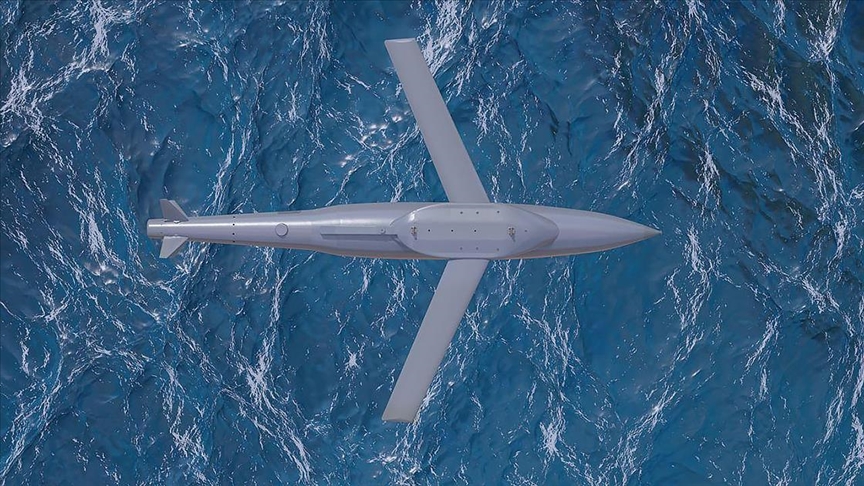Fatih Yurtsever*
The International Defense Industry Fair (IDEF), held in Istanbul July 25-28, provided a glimpse into the rapidly evolving landscape of Turkey’s defense industry. Major indigenous companies such as Aselsan, Havelsan and weapons manufacturer MKE were among the exhibitors, showcasing their latest weapons systems and sensors. In a world unsettled by the ongoing Russia-Ukraine conflict that began in February 2022, the question arises: Could Turkey’s defense industry, with innovative products like the UÇA sea mine, become a pivotal factor in the Russia-Ukraine conflict?
The escalating costs of the Russia-Ukraine war have underscored both sides’ reliance on external military support. Russia, for example, has employed Iranian-made Shahed 136 kamikaze drones to gain an advantage on the battlefield. However, international relations are also at play beyond the immediate theater of war. For example, North Korean leader Kim Jong-un is scheduled to attend the Eastern Economic Forum in Vladivostok, Russia, from Sept. 10-13. US officials say the discussions will focus on Russia’s arms procurement from North Korea.
Ukraine, too, requires a steady flow of arms and ammunition to sustain its war effort. This intricate web of international alliances and dependencies raises important questions about the sustainability and broader implications of the ongoing conflict, amid which Turkey faces a diplomatic balancing act. It must navigate its relationships with both countries carefully. However, Turkey’s reliance on financial institutions dominated by the US, like the World Bank, has affected its close relationship with Russia. To obtain financial support from EU countries and the US, Turkey has started to shift more towards the Ukrainian side in the Russia-Ukraine war. Turkey reiterated its stance of not recognizing Russia’s annexation of Crimea, and President Recep Tayyip Erdoğan stated that Ukraine deserved NATO membership. A bilateral summit on Sept. 4 between Erdoğan and Russian President Vladimir Putin in Sochi was uninspiring and less productive than previous bilateral summits. No treaty or memorandum of understanding was signed at the end of this last summit.
In a statement following Ukrainian President Volodymyr Zelensky’s visit to Turkey on July 8, Russian Foreign Ministry spokeswoman Maria Zakharova highlighted the risks of growing military-technical cooperation between Ankara and Kyiv. Additionally, the Russian Foreign Ministry issued an official statement on this subject the day before Foreign Minister Hakan Fidan’s visit to Moscow at the end of August. The Russia-Ukraine war has become such that neither Russia nor Ukraine can afford to lose the war. For NATO and EU countries that support Ukraine, it has become imperative for Ukraine to take back some of its occupied territories to maintain the rules-based international order. Therefore, many issues that were not discussed at the beginning of the war, such as the provision of F-16 fighter jets and long-range cruise missiles to Ukraine, have become possible today.
Under these evolving circumstances, it may be inevitable in the near future that Turkey, which has always boasted of its growing defense industry, will develop closer military cooperation with Ukraine despite Russia’s reaction. Turkey’s rapidly advancing defense industry could be pivotal in shifting the military balances. One of the priorities for Ukraine currently is to counter, or at least minimize, the impact of the blockade that Russian warships have imposed on its Black Sea ports. Given the current circumstances, Ukraine faces significant challenges in building a navy capable of countering the Russian Navy in the Black Sea, both now and in the foreseeable future. Instead, Ukraine is trying to prevent the Russian Navy’s activities in the Black Sea by using asymmetric means, such as attacking Russian warships with unmanned surface vessels.
At this point, an offensive mining system manufactured by MKE and exhibited at IDEF comes to the forefront for Ukraine restricting the activities of Russian warships in the Black Sea. At IDEF 2023, Turkish weapons manufacturer MKE unveiled its innovative sea mine, UÇA, designed to be deployed from various aerial platforms such as F-16 fighter jets as well as AKINCI and AKSUNGUR unmanned combat air vehicles (UCAV). With an impressive range of 70 kilometers, this cutting-edge mine is a collaborative effort between MKE, TÜBİTAK-SAGE and Koç Savunma. MKE has transformed the MK-84 general-purpose bombs into sophisticated sea mines by integrating a GÖKÇE wing-assisted guidance system, advanced target detection technology and a specialized mine detonation unit. These aren’t just ordinary sea mines. Enhanced with specialized guidance systems, target detection technology and controlled detonation mechanisms, they are smart and sophisticated. These advanced features make them potential game-changers in naval warfare.
If Turkey were to sell AKSUNGUR or AKINCI UCAVs to Ukraine, it could have a significant impact. Combined with the innovative UÇA mines, this move could severely disrupt Russian naval operations in the Black Sea. Specifically, it could enable the mining of exits at key ports like Sevastopol and Novorossiysk, where Russian warships and submarines are based.
As Turkey seeks to improve its relations with the US and EU countries due to economic pressures, it is increasingly likely to distance itself from Russia. However, the trajectory of future Turkey-Russia relations will largely hinge on the defense cooperation between Turkey and Ukraine and the subsequent weapons sales that may ensue. Given the capabilities of innovative technologies like UÇA, Turkey’s role in the Russia-Ukraine conflict could be significant, influencing the military tactics on the ground and reshaping alliances and geopolitics in the region.
* Fatih Yurtsever is a former naval officer in the Turkish Armed Forces. He is using a pseudonym out of security concerns.



